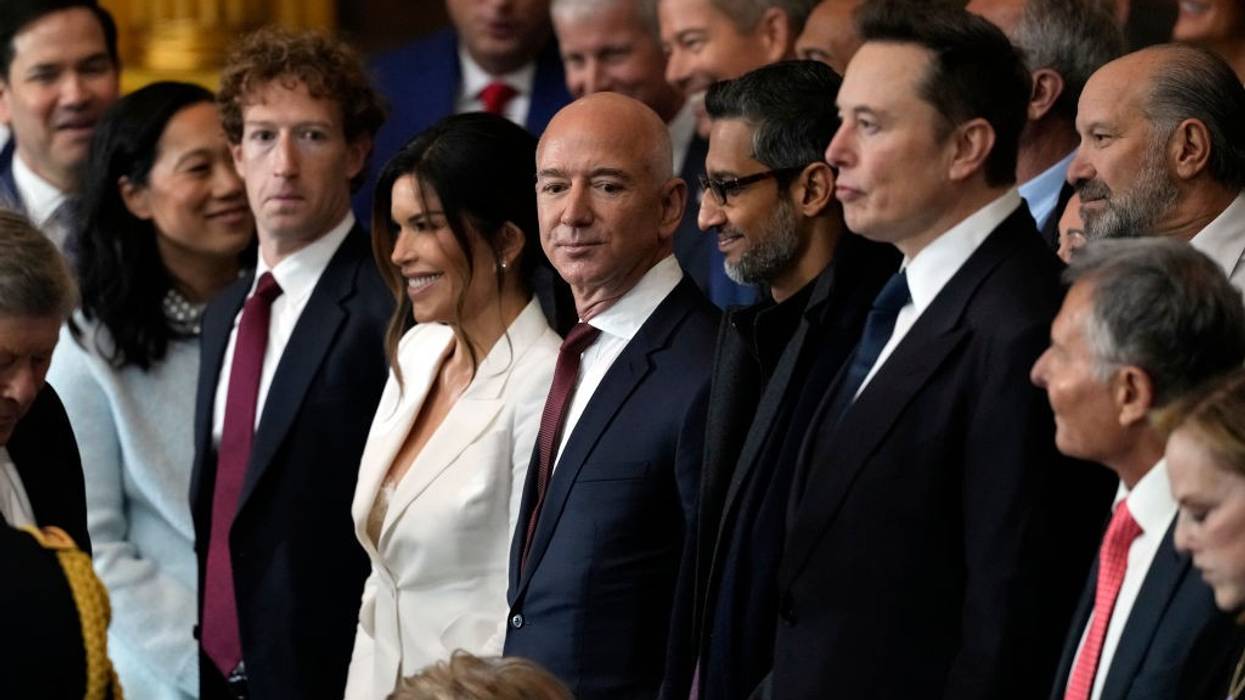77% of Global Millionaires Agree: Extreme Wealth Allows Uber-Rich to Buy Political Influence
Actor and activist Mark Ruffalo said that “extreme wealth inequality enabled” President Donald Trump, “and is the root cause of the trend towards authoritarianism we’re witnessing in the US and around the world.”
For years, progressives such as Sen. Bernie Sanders and Rep. Alexandria Ocasio-Cortez have made the case that the world's richest people wield a dangerous level of influence over US politics—and it turns out that many millionaires agree.
New polling conducted on behalf of Patriotic Millionaires surveyed 3,900 millionaires across the world and found that 77% of them believe that extremely wealthy people are able to buy political influence, with 62% believing that extreme wealth is a threat to democracy itself.
Furthermore, 82% of millionaires surveyed endorsed limits from how much politicians and political parties can receive from individual contributors, while 65% supported higher taxes on the highest earners to invest in public services.
President Donald Trump's second term also received low marks from the millionaires surveyed, with 59% saying he has had a negative impact on global economic stability, and 58% saying that he's hurt US consumers' ability to afford basic necessities.
The poll's release coincided with the sending of an open letter signed by hundreds of millionaires across 24 countries asking world leaders gathered in Davos, Switzerland for the World Economic Forum to increase taxes on the ultrawealthy in the name of rescuing global democracy. Trump is set to speak at the event on Wednesday.
"A handful of global oligarchs with extreme wealth have bought up our democracies; taken over our governments; gagged the freedom of our media; placed a stranglehold on technology and innovation; deepened poverty and social exclusion; and accelerated the breakdown of our planet," states the letter. "What we treasure, rich and poor alike, is being eaten away by those intent on growing the gulf between their vast power and everyone else."
Actor Mark Ruffalo, a signatory of the letter, argued that the extreme dangers posted by Trump and his political movement were the direct result of global wealth inequality that has gone unaddressed for decades.
"Donald Trump and the unique threat that he poses to American democracy did not come about overnight," Ruffalo explained. "Extreme wealth inequality enabled his every step, and is the root cause of the trend towards authoritarianism we’re witnessing in the US and around the world."


